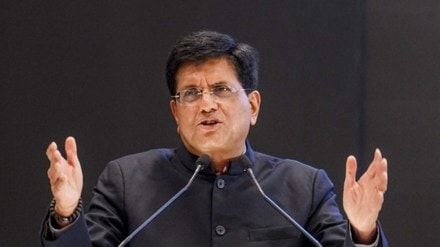The government is working to secure the supply of critical minerals through trade agreements with Chile, Peru and Australia while also increasing domestic exploration and processing capacity, commerce and industry minister Piyush Goyal said Friday.
“In our own country we are looking at increasing exploration activity. I have been talking to start-ups engaged in the area for recycling of waste that comes out from which rare earths can be extracted. We are also talking to some of them to create facilities for processing of rare earths,” he said at the Assocham’s annual conference.
“Look at Chile and Peru, think about it. Why am I doing FTA with them in the first place? It gives you the answer,” he said when asked about steps the government is taking to deal with the shortage of these minerals. China currently dominates the global rare earth elements market, accounting for 70% of total production and nearly 90% of processing capacity.
It has used its dominance as a leverage in the trade dispute with the US but putting controls on their exports. The decisions taken in response to the US tariffs, have ended up hurting manufacturing worldwide. The shortage of minerals after China put curbs on their exports has reduced supplies for Indian manufacturers of electric vehicles.
Chile and Peru have vast reserves of critical minerals, with both countries being world leaders in copper and possessing significant lithium, silver, and molybdenum deposits. Chile leads in copper reserves and is a major player in lithium, while Peru holds the world’s second-largest silver reserves and is also rich in copper and molybdenum.
Australia also has vast critical mineral reserves, including significant deposits of lithium, cobalt, nickel, manganese, and rare earth elements. While it is the world’s largest lithium producer, over 75% of its total critical mineral deposits remain undeveloped.
India already has an Economic Cooperation and Trade Agreement with Australia. Now both countries are negotiating to expand it into the Comprehensive Economic Cooperation Agreement (CECA).
The Indian team is visiting Chile and Peru for the next round of trade negotiations by the end of this month. The minister also suggested the industry to diversify their supply chains as dependency on one country for import of any product will create problems.
We must assess all our respective supply chains, see whether they are overly dependent on any particular geography,” he said adding if it is dependent on one country, “you are prone to vulnerability particularly in the world where trade is being used as a weapon”
“We have seen weaponisation of trade and supply chains. Make your supply chains robust, wherever possible be self sufficient and self-reliant. Make sure, we have a sufficient number of options so that we are not vulnerable,” he added.
He also said that the government is formulating guidelines for the newly announced Rs 10,000 crore Fund of Funds Scheme (FFS) for startups, unveiled in the Budget.
It is focusing on manufacturing and high-technology sectors, which require longer-term funding.
